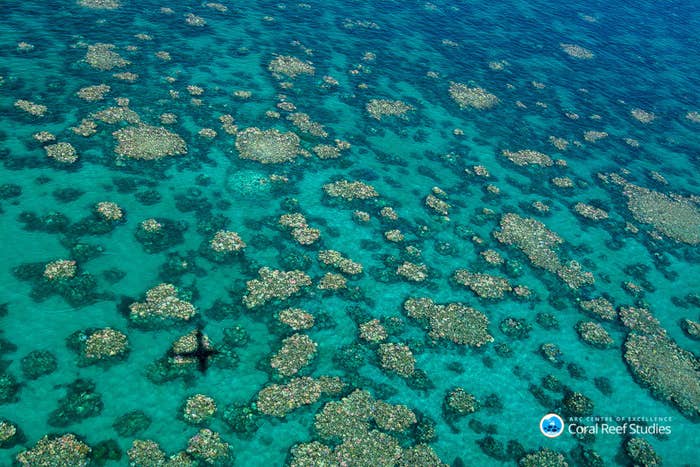
A foundation that was founded by a "small group of businessmen" chatting at an airport at the turn of the century will be given nearly half a billion dollars to protect the Great Barrier Reef, and now people are asking, well, why them?
At the end of April, before the budget, the Australian government announced that it would allocate over $500 million to protect the Great Barrier Reef.
Which is great news, because the Great Barrier Reef? Not so healthy.
But in the announcement, the government revealed that a small, little-known organisation known as the Great Barrier Reef Foundation would be given the bulk of the money ($443 million) as a grant to improve water quality, restore the reef, and basically clean it up.
And people were like:
According to the foundation's annual report, it has just six full-time employees.
The foundation says it "started with a small group of businessmen chatting at the airport while waiting for their flight, wanting to do something to help the Great Barrier Reef".
The Great Barrier Reef Foundation has a chair's panel, with panel members including executives from mining and oil companies such as Boral, BHP, Rio Tinto, Orica, and Peabody Energy. The chair, John Schubert, spent most of his working life at Exxon.
In the last financial year, the group doled out $5.1 million in grants for work on the Great Barrier Reef, including to the Bureau of Meteorology, the CSIRO, and the Australian Institute of Marine Science.
Even the head of the foundation, Anna Marsden, described the funding announcement as "winning the lotto".
This is way more money than the foundation is used to dealing with, and in Senate Estimates last week Labor and Greens senators questioned how exactly it came to be that the Great Barrier Reef Foundation was given all this money seemingly out of the blue.
"The foundation is well-placed, having raised tens of millions of dollars previously,
to be able to administer investments in the reef and associated programs," education minister Simon Birmingham (representing environment minister Josh Frydenberg) told Labor senator Kristina Keneally.
The grant is for six years, but the Great Barrier Reef Foundation will receive all of the money up front. Before that happens, though, the government and the foundation will have to "consummate" the partnership, as one environment department official put it last week, and due diligence will be part of the process of finalising the agreement.
"What I am surprised about, minister, is your cavalier attitude to the granting of $444 million of taxpayer money without a public grant process, an open and transparent process, a competitive process, a consideration of whether the authority could have carried out this work rather than a foundation that has six full-time members and five part-time members and that has described this grant as like 'winning the lotto'," Kenneally said.
"They should be invited to compete for that funding, and it should be done in a transparent way. What we have learnt today is that the government decided to give this foundation the money before they'd approached the board to discuss it."
If the foundation went out of business or the government wanted to terminate the deal, department officials assured senators that there would be a mechanism for the funding to return to government.
Labor's shadow minister for the environment, Tony Burke, has said that the normal process for a grant would be for it to be administered by the department and the Great Barrier Reef Marine Park.
The Greens party is now pushing for a Senate inquiry into how the government arrived at the decision to award the money to the Great Barrier Reef Foundation without any tender process.
Meanwhile, a report in Nature Geoscience released today said that although the Great Barrier Reef had survived five so-called "death events" over tens of thousands of years, and had bounced back, the sharp rate of decline and the possibility of year-on-year mass coral bleaching means it might be harder for the reef to survive the next few decades.
Deep sea explorer and Titanic director James Cameron said on Monday that unless humans act on climate change, then the reef "will die".
